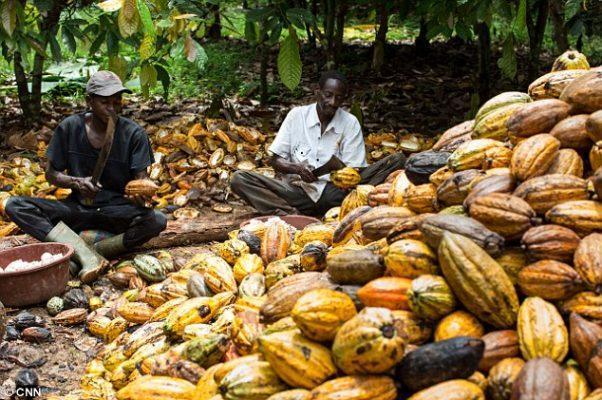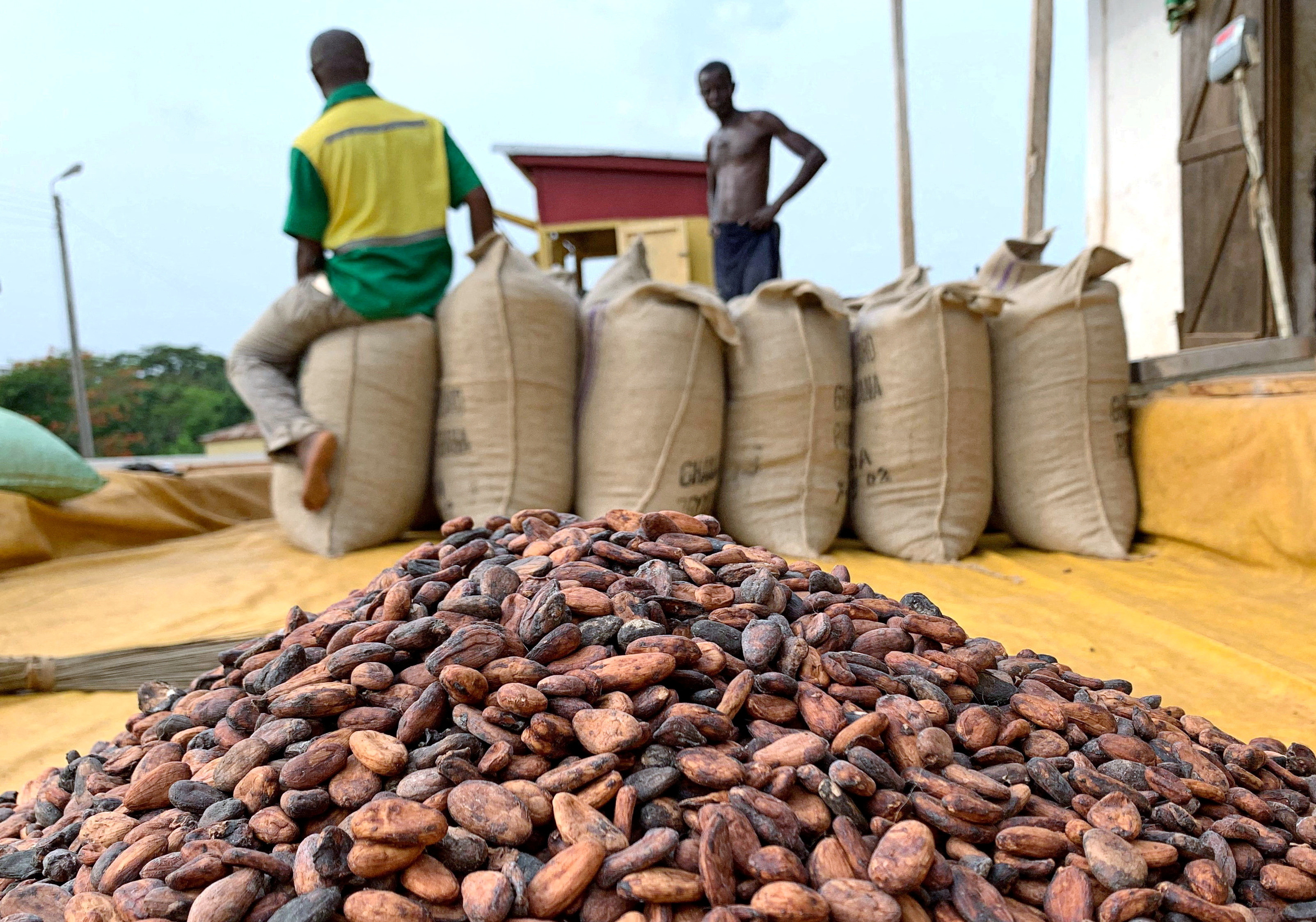
The Government of Ghana has announced a significant rise in the producer price of cocoa for the 2025/2026 season, increasing it from US$3,100 to US$5,040 per tonne, a 62.58% increase in dollar terms.
- The Government of Ghana announced a 62.58% increase in the producer price of cocoa for the 2025/2026 season, setting it at $5,040 per tonne.
- This increase aligns with a pledge to ensure cocoa farmers receive 70% of the Free-On-Board (FOB) value.
- The new price was determined amidst a favorable exchange rate and declining inflation, reflecting economic adjustments.
The announcement was made by the Producer Price Review Committee (PPRC), chaired by the Minister for Finance, Dr Cassiel Ato Forson, ahead of the new cocoa season set to begin on Thursday, 7 August 2025.
“It is instructive to note that the Government has by this decision increased the producer price significantly by 62.58% in US dollar terms,” the Minister stated.
This revised price represents 70% of the gross Free-On-Board (FOB) value of US$7,200 per tonne, aligning with President John Mahama’s pledge to ensure cocoa farmers receive 70% of the FOB value.
Under the previous NPP government, the producer price was set at US$3,100 per tonne for the 2024/25 season, just 63.9% of the FOB value of US$4,850, despite stronger international cocoa prices at the time.
According to the government, the new gross FOB value is based on 100,000 tonnes sold at US$2,600 per tonne in the 2023/24 season and forecast pricing for the new season.
SEE ALSO; Namibia and Zambia to scrap passports for border travel
With the Ghana cedi trading at an average rate of GHS10.25 to US$1, the new producer price translates to GHS51,660 per tonne, up from GHS49,600, equivalent to GHS3,228.75 per 64kg bag.
“This is coming on the back of a strong Ghana cedi and declining inflation, reflecting the Government’s commitment to improving the livelihoods of our cocoa farmers,” Dr Forson added.
Subsidy to cushion currency effects
To protect farmers from income loss due to the cedi’s strength, the government had, for several months, maintained the cedi equivalent of US$3,100 per tonne at a rate of GHS16 to US$1. This amounted to a GHS1,114 subsidy per bag since Q2 2025.
“This intervention by Government moved the farmer share of the FOB from 63.9% to over 99%,” the Minister revealed.
New margins and inputs for the cocoa chain
The PPRC also approved revised fees and margins for key stakeholders in the cocoa value chain, such as buyers, hauliers, warehouse operators, and quality control officers.
The Ghana Cocoa Board (COCOBOD) has assured readiness for the season’s launch, with jute sacks and logistics in place.

A major highlight of the new season is the reintroduction of the Free Cocoa Fertiliser Programme.
“I am pleased to announce that President Mahama’s administration has reintroduced the free cocoa fertiliser programme as an additional support to the Ghanaian cocoa farmer,” Dr Forson said.
Farmers will receive liquid and granular fertilisers, insecticides, fungicides, spraying machines, and flower inducers at no cost. The government encouraged farmers to use these inputs strictly to enhance productivity and income.
COCOBOD Reforms to Focus on Core Mandate
As part of broader reforms, the government intends to amend the Ghana Cocoa Board Act in the 2026 Budget to prevent COCOBOD from engaging in non-core activities.
“As part of the 2026 Budget, the Ghana Cocoa Board Act will be amended to make it illegal for COCOBOD to deviate or stray from its core mandate to protect the cocoa industry,” Dr Forson said.
SEE ALSO: Kenya’s president, Ruto, permits gun violence as a response to civil unrest
All ongoing cocoa road projects will be transferred to the Ministry of Roads and Highways, freeing COCOBOD to focus on yield improvement and farmer welfare.
“COCOBOD must focus on increasing cocoa yields, improving the cocoa value chain and the wellbeing of the cocoa farmer,” he stressed.
The government reiterated its confidence in COCOBOD’s new leadership and pledged continued support to restore cocoa as the backbone of Ghana’s economy.












